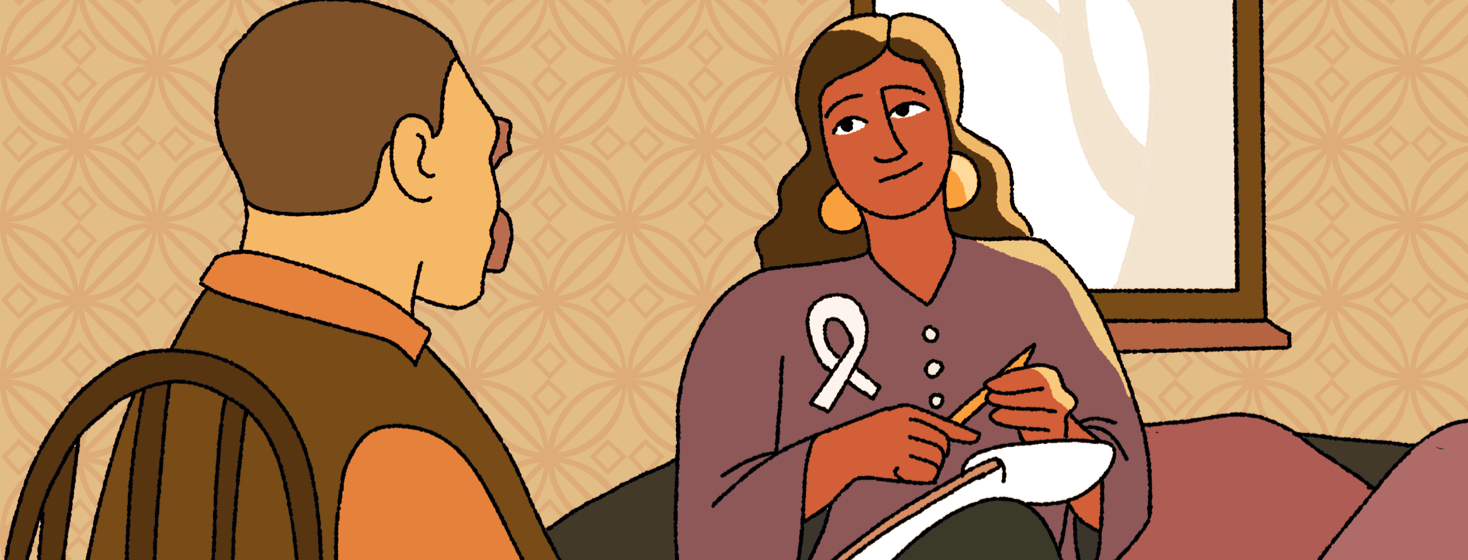My Journey to Understand Psycho-Oncology
Before I tell my story, I'd like to distinguish the terms psychology and psycho-oncology, also called psychosocial oncology. Psychology is a particular field of the study of mind and behavior. Psycho-oncology studies the social, behavioral, and ethical aspects of cancer. So psycho-oncology is a specific branch of psychology.1
Lung cancer and our mental health
Before I was diagnosed with lung cancer, I never visited a psychologist or a psycho-oncologist. I was confident about my mental health and thought I didn't need them. Also, there is a stigma toward people with mental health problems. So I had never paid attention to psychology or psycho-oncology before.
I was diagnosed with lung cancer in 2015. In the beginning, I couldn't function because I was shocked, scared, devastated, sad, and sorry for myself and my loved ones, you name it. I hesitated but decided to see a psychologist, not expecting her to make a miracle, but maybe she could help me to some extent. I was desperate then. To make a long story short, I wasted my time and was more frustrated. I vowed never to visit a psychologist. I lost trust in psychologists.
We need psycho-oncology/psychologist
I started cancer advocacy approximately four years ago. Initially, my advocacy focused on medical treatments like targeted therapy, immunotherapy, side effects, etc. Soon, I noticed that the patients' and caregivers' mental health issues are common and severe. I realized that we need help psychologically.
I noticed that many patients and caregivers, like me, don't give mental health problems high priority because we have such a fatal disease of lung cancer. We worry about our mortality, conditions, availability of treatments, side effects, loved ones' well-being, and financial toxicity, etc. Mental health, though, is important but is not an urgent problem. Thus, we suffer in silence, as I did.
I'm still hesitant to visit a psycho-oncologist
There are three obstacles for me to visiting a psycho-oncologist: 1) the stigma toward patients and caregivers, 2) the trust of psychologists, and 3) the unknown of the field of psycho-oncology. I'm strong enough to handle the stigma and seek mental support but after my experience with a psychologist after I was just diagnosed with lung cancer, finding a trustworthy psychologist is my concern.
I'm still not ready to visit a psycho-oncologist, but I talked to a future psychologist - my daughter - a clinical psychology Ph.D. student. In the past two years, when my daughter was doing her M.Sc. degree in Clinical Psychology, I talked with her about the mental health problems of many cancer patients and caregivers based on my observation. I especially talked about the trust issue between the clients and psychologists since it has been my main issue. I didn't trust the psychologists and had no intention of opening my wounds again.
I'm impressed that my baby girl is knowledgeable and professional as I talked to her about mental health problems. I found she is non-judgemental, supportive, and eclectic. But, more importantly, she made me feel that I was heard and understood. I couldn't help thinking that working with psychologists might not be bad if they are just like my daughter.
I learned a lot by becoming a Board member for CAPO
At the beginning of 2022, I was asked to be on the Canadian Association of Psychosocial Oncology (CAPO) board. I already knew the power of psycho-oncology at the time and wanted to learn more. So I accepted the request, and once a month, I spend at least one hour with the board members talking about the work of CAPO.
I attended CAPO/IPOS 2022 World Congress early this month in Toronto, Canada. When I finished the conference, I learned firstly the research of psycho-oncology is advanced significantly and has become a main branch of psychology. Secondly, there is a disconnect between psycho-oncological researchers and cancer patients and caregivers. Such a disconnection is similar to the one the patients and caregivers have experienced in medical oncology. Therefore, I hope that CAPO/IPOS can adapt some strategies in medical oncology to involve and engage the patients and caregivers in their psycho-oncological research to make it more relevant to patients and caregivers.
In one of the Plenary Sessions of CAPO/IPOS 2022, one speaker mentioned that the patient's mental health should be one of the items included in the annual physical check-up. This idea shook me. Indeed, I checked "Medical News Today", and mental health is nowhere to be seen. Throughout my seven-year lung cancer journey, I don't remember my oncologist ever asking me any mental health questions.2
After thoughts about psycho-oncology
We need psycho-oncology, which has advanced significantly. I think I’m regaining the trust of psycho-oncologists, and I'll visit them in time. But like medical oncology, psycho-oncology also has the same problem of involving and engaging patients and caregivers in psycho-oncological research. So we will have a lot of work to do.

Join the conversation